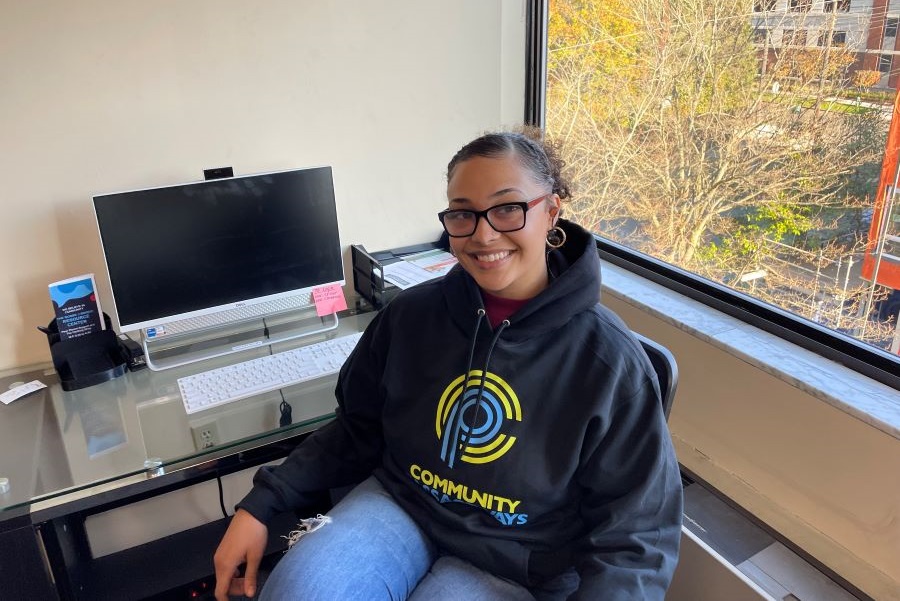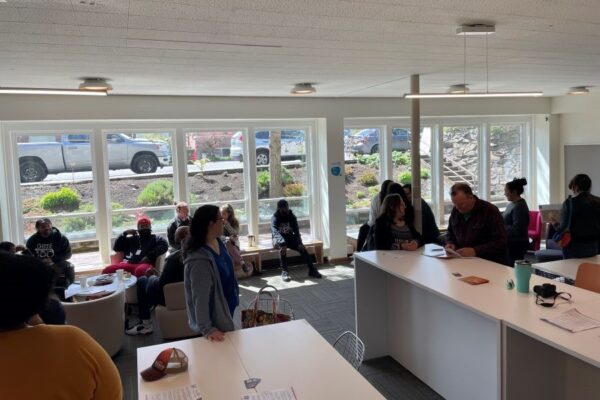Black Community Building Collective: Alternatives to Incarceration
The Black Community Building Collective is a coalition of 15 Black-led organizations brought together by United Way of King County to build relationships, form strategies that impact the Black community, and implement those strategies with United Way funding that cedes decision-making power to communities. The Collective launched in 2020 to invest $3 million in local, Black-led organizations. We’ve invested an additional $1.5 million in 2022 and we anticipate more funding in later years.
United Way features monthly spotlights of Collective members. This month, we’re spotlighting Community Passageways, a Seattle-based felony diversion and prevention organization founded in 2017. We recently sat down with Community Passageways family support specialist Charmaine Madden to learn more about the organization.
United Way of King County: What are the origins of Community Passageways?
Charmaine Madden: Dominique Davis [Community Passageways founder and CEO] in 2017 came together with some of his community partners and decided that something needed to be done about the way that gun violence is handled in our communities, the way that Black and brown kids, and youth in general, are disproportionately criminalized and how harsh those sentences can be. We understand that moving youth from those communities when they are young is detrimental to them and their communities. And when those youth leave prison, they often find it difficult reacclimating to society.
So, they came up with Community Passageways, or CP, and started hitting the ground strong, making sure they had CP very visible within the school systems in Seattle. They did things like pop ups in afterschool programs and all these different diversion programs, and from there it has been able to grow from what it is today.
United Way of King County: What kinds of programs does Community Passageways offer?
Charmaine Madden: CP offers different programs that focus on personal healing, identity development and leadership, all through building this four-pronged approach: prevention, diversion, support and reintegration. Those are the four pillars Community Passageways works off of.
United Way of King County: Can you elaborate on each of those pillars?
Charmaine Madden: With prevention, we really try our hardest to keep youth out of the incarceration system. We like to intervene early so we can stop that course from happening. With diversion, we try to keep people out of the prison system and in the community—keeping them active and engaged in behaviors that are for the well-being of the community as a whole.
With the support piece, there are already people in the prison system, and we try to lean in and give them the support they need. And with reintegration, when folks reenter the community, we want to make sure they have the skills and resources necessary to be successful.
United Way of King County: Where does your work show up in the community?
Charmaine Madden: We have about nine different programs, from case management to mentorship to on the ground support and community teams, that go out and respond to things that happen at the schools. For example, the Ingraham High School shooting that happened recently: CP showed up to provide support. We showed up in solidary with the students who did their [protest] walk and spoke out about the things they needed for their school and the things they needed to succeed.
We take pride in being very open and listening to the students, because they will tell you exactly what’s going on. If you listen and build relationships, they will tell you what they need. And it’s our job as folks who are older and have a bit more experience and resources to help build that future for them.
We have resource navigators, we have education programs, and in all of that we try to provide full-blown, wraparound services to folks. We have teams that work specifically with Harborview Medical Center; when there is a gunshot victim at the hospital, we have a rapport with the hospital that allows us to be on the radar of patients. They will ask a patient, “Do you want Community Passageways to reach out and see what they can do for you?” We have a representative at the hospital who is a direct contact, and we abide by all HIPPA regulations. There are a lot of traumas that happen after the wound has been stitched up. We are building up our network of therapists of color so that people feel heard and represented by the people who are coming to help them.
United Way of King County: What is the age group you serve and what is the area that you serve?
Charmaine Madden: The ages are from 12-24 and we serve King County. We do have bandwidth with different networks in Tacoma, so our network extends far. So, if someone reaches out from Pierce County with needs or they get hurt here and live in Pierce County, we’re able to partner with different organizations or refer them to organizations within their county that can provide the services we do.
United Way of King County: What are some of your results?
Charmaine Madden: Since 2017, we’ve worked with more than 100 young people with felony charges with the aim of diverting their charges and keeping them in the community. Most of the participants we worked with spent no time in detention and the average young person saw an 80% reduction in the length of sentencing from the work they did with us.
Their commitment to work with CP on a day-to-day, week-by-week basis is information that the courts are taking into consideration. And the courts are adamant on understanding that this is a human rights issue, more so than a political one. They understand that youth and young life is super impressionable. As easy as it is to take it away it’s very easy to breathe life into these kids.
Out of the more than 100 youth that we’ve worked with, they were collectively facing 370 years in prison. As a result of our work, all the time they received in totality was 59 years.
United Way of King County: How did you get involved in this work?
Charmaine Madden: Growing up, I saw my mom work in nonprofits. She was very adamant about me having a people-first mindset regardless of what field I went into. And my dad was adamant about taking my education with the utmost seriousness. I grew up in Fife and I went to Washington State, and there is where I found my passion for community-based intervention. When I graduated, I decided to take that work with me back home.



Comments